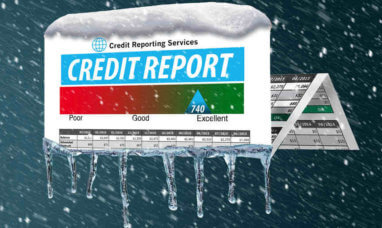Credit scores play a major role in whether a lender offers someone credit. They also determine what kind of interest rates you can qualify for. So, if you’re looking to get a loan or a new credit card, you need to have a good credit score.
But what exactly is a good credit score? Since the range for credit scores is so vast, it’s easy to get confused. Luckily, we’re here to help. Here’s everything you need to know about credit score ranges and what they mean.
What Is a Credit Score?
A credit score is a number between 300 and 850. Your number represents your creditworthiness. The higher your score, the more trustworthy you are in the eyes of a lender. Lenders use credit scores to determine the likelihood of you repaying loans in a particular amount of time.
Credit scores are mostly based on your credit history, which includes things like:
-
-
- The number of credit accounts you currently have open
- Your level of debt
- Your history of debt repayment
-
Credit Score Ranges Explained
Wondering where your credit score falls? Here’s a guide to the credit score ranges and what they mean.
Exceptional Credit Scores: 800 to 850
850 is a perfect credit score, but it is, of course, a difficult one to achieve. Luckily, any score between 800 and 850 is considered excellent. So, if you’ve got an 804 credit score, you fall well within the lines of exceptional.
There are many advantages of having an exceptional credit score. Apart from finding it easier to borrow from lenders, you’re also likely to get excellent interest rates on loans.
An excellent credit score is not so hard to achieve. The easiest way is to ensure you make all your payments on time. Making payments on time is the biggest factor when it comes to credit scores.
You should also aim to borrow less frequently and pay in full whenever possible. To keep your score in the exceptional range, try not to open too many credit accounts. The more credit accounts you have, the more you borrow, and the lesser your credit score is likely to be.
Very Good Credit Score: 740 to 799
The next credit score range is 740-799, which is considered very good in terms of borrowing. A score in this range indicates to lenders that you are more or less responsible when it comes to the management of your credit.
A score between this range can indicate to lenders that you’ll repay in a timely manner. It also means you can get pretty good terms on credit, such as lower interest rates for credit cards. So, if you were thinking, “Is a credit score of 772 good?” you can rest assured that it is!
Good Credit Score: 670 to 739
Scores ranging between 670-739 are regarded as good credits. This range also includes the average credit score for American residents. Most lenders view consumers with credit scores within this range as acceptable borrowers.
If your credit score is within this range, you are likely to qualify for a wide lineup of credit cards as well as loans. But, you might be charged a higher interest rate than if your score was in the previous two categories.
Also, keep in mind that there’s a lot of difference within this range when it comes to credit approval. It may be easier to get a credit card with a 702 credit score than it is to get a 673 credit score credit card application approved. Similarly, a 722 credit score auto loan interest rate is bound to be better than the interest rate on a 670 credit score auto loan.
Fair Credit Score: 580 to 669
Credit scores that fall in the range of 580 to 669 are fair. If you have a score in this range, you may be able to get credit, but your options could be extremely limited.
Luckily, it isn’t difficult to improve your score if you’re in this range. You can easily do this if you pay your bills on time, pay most of what you owe, and use your credit card responsibly.
You should also check your credit reports regularly to make sure that there have been no errors in calculating your score.
Poor Credit Score: Under 580
Bad credit is any score under 580, which unfortunately includes a 507 credit score. People in this range usually have a history of not being able to pay their bills on time and not following repayment schedules.
Someone who has bad credit may also find it difficult to be able to borrow money at competitive interest rates. Whether you have a 307 credit score or a 507 credit score, you will find it difficult to get a loan or credit card.
What if I Have No Credit?
Having no credit score is an indication that a person has not yet opened a credit account. Young adults tend not to have a credit score because they usually don’t have any credit history.
For a first-timer, building credit can be done by using a credit card that is secure or taking out a loan.
What Is the Average Credit Score?
The average credit score in America is 711. But the average score for your demographic can vary based on different factors, including your age, income, and state.
In the past 15 years or so, the average credit score has increased slowly. However, it should be noted that there was a sharp decrease in average credit scores during the Great Depression of 2009 when a large number of people had to declare bankruptcy.
Bottom Line
A credit score is a number that can either save a lot of your money or cost you a lot of money. A great or excellent score is bound to get you lower interest rates, which means you have to pay less for any credit you take out. On the other hand, a lower credit score means you pay more to borrow.
At the end of the day, it’s up to you, the borrower, to ensure your credit score remains in a good range. Nonetheless, if you have a low credit score, don’t worry too much. There are plenty of ways to go about fixing your score!
Featured Image: Twenty20







